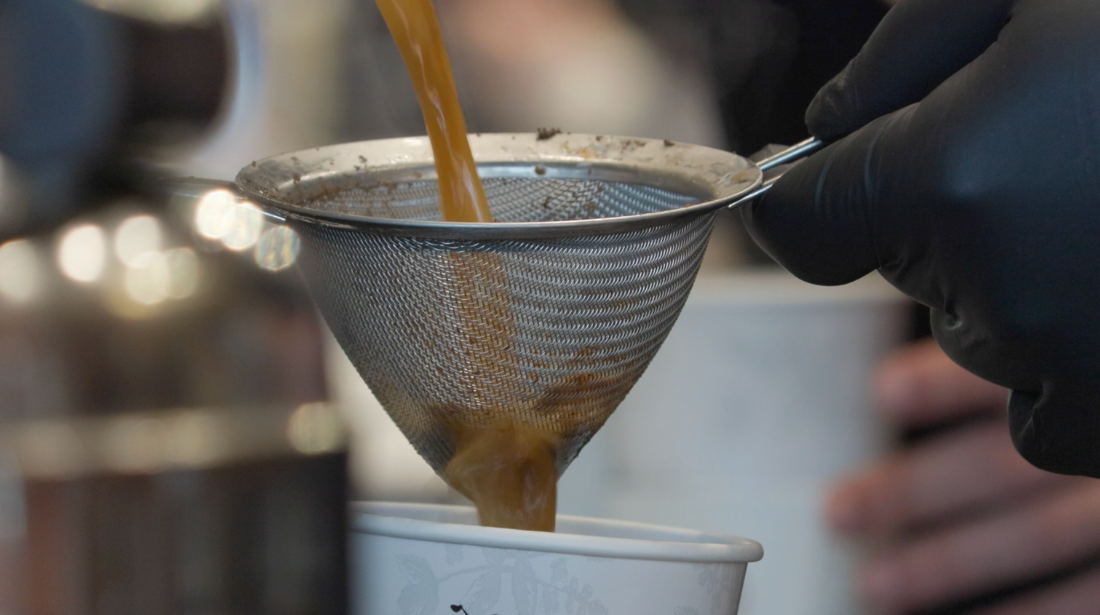By Sidra Dahhan
Medill Reports
Yemeni coffee shops, like Qahwah House in Lombard and Haraz Coffee House in Orland Park, have surged in popularity in the past couple of years — especially among young Muslims in America. It’s not just a Chicago phenomenon, it’s happening nationwide. Americans are being introduced to food culture in Yemen, the birthplace of coffee as we know it today.
Transcript:
Sidra Dahhan: With chai, cards and company, Chicago locals are relaxing at one of the city’s newest Yemeni coffee shops, a popular nightlife spot for young Muslims.
Ahmed Noreddin: It’s like 12 o’clock, you don’t know what to do? Come to Qahwah House.
Dahhan: It started in 2017, when the first Qahwah House opened in Dearborn, Michigan, the Arab American capital of the U.S. where 30,000 Yemenis live. More brands, like Haraz and Qamaria, followed suit. Now these shops are nationwide, with four locations opening in Chicago the past couple years – like Qahwah House in Skokie.
Janel DeShields: I’m here with a bunch of my besties, and they recommended this place and thought, “Oh it’s a really good place.” I’ve never been here before.
Ahmed: It’s local, it’s Muslim-owned and we want to support the business here. I ordered the Adeni chai. Love it, 10/10.
DeShields: It was delicious, it was sweet and really nice, and it was just the right amount that I needed.
Dahhan: The aromatic and milky Adeni chai is a staple of these cafes, along with spiced coffees like …
Arif Jaffery: … Sanaani. It’s the medium roast coffee with cardamom. I like it, it has a perfect flavor because medium roasted is not dark, it’s not too strong a flavor and perfect amount of caffeine.
These are not the stock photos. These are the real photos. That’s where Ibrahim Alhasbani and his family’s been growing coffee for centuries.
Dahhan: Coffee has a long history in Yemen, a coastal nation on the Arabian Peninsula. The beverage we know and love today originated there in the 15th century, from Ethiopian coffee plants. It made its way around the world through the port of Mokha, where the chocolatey drink’s name comes from.
Jaffery: Because it’s the port of Mokha. it’s not like they’re making it. it’s just the bean. Naturally there’s a sweetness, there’s a chocolate flavor in it.
Dahhan: Managing partner Jaffery first came across the Dearborn location in 2017.
Jaffery: We just went there as a customer, me and my family, and really enjoyed the coffee. Everybody and especially us, the Arab community and the South Asian community, they need a place, they all need a place to socialize.”
Dahhan: Like Qahwah House, Haraz Coffee, which recently opened a location in Orland Park, is also a hotspot for the local community – Muslims and non-Muslims alike.
Hamzah Nasser: Just a month ago I had someone here in Dallas, a U.S. Army veteran. He sent me an email asking: Does your coffee shop accept non-Muslims? I said absolutely, of course.
Dahhan: After visiting the shop with his family …
Nasser: … he emailed me. He had a different thinking of Muslims. We as Muslims want to be open about teaching others about our culture and our religion.
Dahhan: Whether you’re going with friends or family, there’s a social aspect involved.
Yahya Ellison Smith: I don’t know what the pastry is called exactly, but I just wanna take some back to my wife ’cause she needs to experience this.
Noreddin: I wanted to find a place to chill and have some tea and catch up with my friend Yahya.
Dahhan: Ramadan, a holy month where Muslims fast from sunrise to sunset, is approaching, and the late-night coffee rush that starts at 8 p.m. is expected to only get busier.
Ellison Smith: I actually just went out of the country to the Middle East. And just seeing the architecture, like cute little designs like that on the wall, seeing the pictures of Yemen, it just kinda makes you feel like you’re there.
Noreddin: It reminds me of being back home, and we would just stay up late at a coffee shop just drinking tea, which is not a common thing in American culture, but …
Dahhan: … Yemeni coffee shops are normalizing it.
DeShields: It just feels like home away from home in a sense, so I love it.
Dahhan: Sidra Dahhan, Medill Reports.
Sidra Dahhan is a video and broadcast graduate student at Medill. You can follow her on Instagram @sidradahhan.


